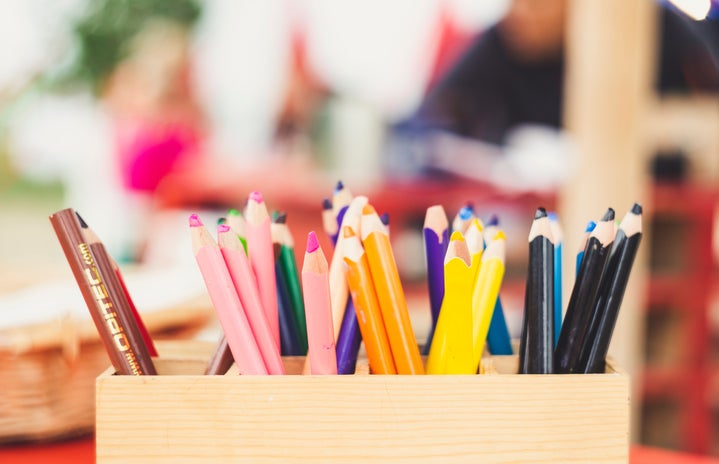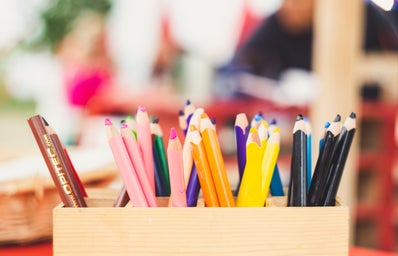Let’s reminisce on a time where a teacher really made a difference in your life. Maybe you did not enjoy reading, and a teacher showed you a book you actually enjoyed. Maybe you were having a hard time at home and needed someone trustworthy to talk to. There is so much more that falls under a teacher’s responsibility than just teaching a subject. It’s much more in-depth. I asked Winona State’s English education student, Rosie Richardson, to get her perspective of a teacher’s role and the impact she wants to make in students’ lives.
Demonstrating Effective Communication
One thing this generation lacks is open communication. When students are at school, they want to feel like they are in an open learning environment and feel safe to share their thoughts and opinions.
Rosie states: “I feel being a role model for students on how to communicate is important. It’s the key to any relationship, whether that be family, personal, or work related.” Being open with each other and demonstrating good communication leads to a strong foundation.
“Communicating not just connects us in educational ways, but personal ways as well. I can learn about your hobbies or share similar experiences. I want to implement as much communication as I can in my class. Being a good communicator can help you from writing a professional email to interviewing for a job.” Rosie believes just listening to the students and hearing what they have to say demonstrates good communication.
Being Inclusive to Everyone
Students can come from so many diverse cultures and backgrounds. Rosie says, “Everyone is unique in their own way. Being inclusive to each other demonstrates kindness and understanding. I want to do this by displaying books in my classroom where students can see themselves as the protagonist as well as the author. I want to give my students the resources they need to connect their own story to the one in their hand.”
In Minnesota, there are many small towns, so displaying books with authors who come from all different types of ethnic backgrounds is a great way for students to see things beyond their hometown perspective and gain cultural awareness. Rosie says that she “want[s] to be able to talk about global education and create a community where everyone feels welcomed and appreciated.”
Give Validation and Acknowledgment for Hard Work
Every student has a different way of learning as well as different ways they enjoy participating. Some students think it is easier to participate in class by raising their hand, some by completing their work on time, and others work best in groups. “I personally participate verbally, but I want to give praise and validation to everyone who is putting in their best effort, even if it does not all look the same.”
Validation can be as simple as saying, “Wow, this is great work! Keep it up!” or even a thumbs up can be any sort of validation for students. This is their indication that they are doing exceptional work and should be verbally or nonverbally acknowledged for it.
Rosie tells me that, “as a teacher, it is my job to give students validation for their efforts. By telling the students they are doing a good job, it keeps them on the right track and helps them grow and progress in the class.”
Create a Safe Space for Sharing Ideas
Sometimes, lectures can get long and draining to listen to, especially after a long day. A great idea Rosie shared with me is how much she wants her class to be student-centered and for the students themselves to drive the conversation. She says, “Every student should feel like they can express their own opinion and viewpoints…I want my students to practice their writing skills through personal narratives, so I can get to know their personality as well as their writing style and where they are at.”
Rosie mentioned there are topics in the world that can be difficult to talk about, an example being sexual assault. However, Rosie says, “It’s important to talk about the hard conversations because it exposes students to the real world and when we all respect each other’s opinions, we can have an open discussion about it.”
Rosie’s Perspective as a Future Educator
Rosie says she is most excited to get to know her students and see them respond to what she has to say, “I cannot wait to see my students have an aha moment, where they understand the concept that we are learning in class.”
One of the biggest takeaways she has had in her education is the power of validation. “I love seeing the students’ faces when I validate them during field experience. It makes them want to participate more.” It makes her feel like she did her job right when her students understand the material being taught.
“Knowledge is power. When you know more, you think more, and when you think more, you challenge yourself. I want to give students the opportunity to gain as much knowledge as they can from my class. Even my students will be teaching me something new each day.” School is more than just another thing on your to-do list––receiving an education helps students gain factual knowledge while also learning soft skills like teamwork, meeting deadlines, and problem-solving skills.
Based on this interview with future English educator Rosie Richardson, it is clear to see she has an explicit idea of how she wants to set up her classroom. She wants to put her students first by having them be effective communicators and learn how to be compassionate and understanding towards others. Hopefully, Rosie’s insights will inspire others to go into the education field.

